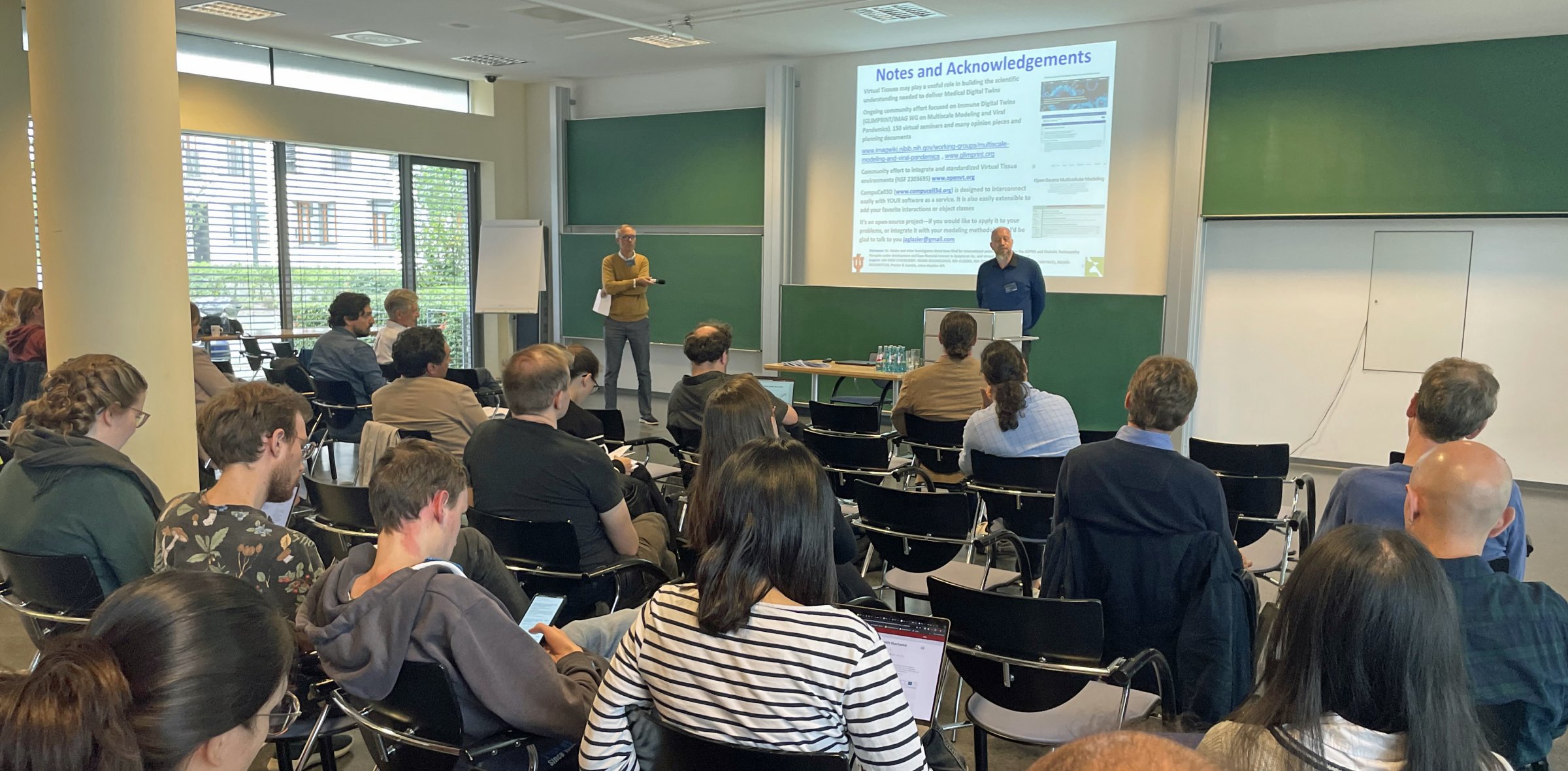October 1, 2024
From multiscale models to digital twins
Successful international Giersch Conference at FIAS
The ‘digital twin’, the virtual image of an object, is already being used in industry to optimise processes. Simulations for sub-processes are established in a scientific context. However, processes in the life sciences are orders of magnitude more complicated. The Giersch International Conference ‘From Multiscale Models to Digital Twins’ successfully brought together scientists from various disciplines at FIAS in September 2024 to discuss this topic.
The participants analyzed the promising possibilities of introducing digital twins in the life sciences and related fields. The topics ranged from molecular simulations and tissue modelling to AI-supported medical digital twins. The more than 70 participants engaged in lively discussions and scrutinised whether and how such approaches could already help to better control scientific experiments, carry them out more quickly and predict their results more precisely.
The conference, funded by the Giersch Foundation and the Hessian LOEWE-CMMS funding programme, brought together speakers from all over the world. They reported on topics such as personalised medicine, neuronal modelling and astrophysics. The talks highlighted how mechanistic modelling and artificial intelligence can improve our understanding of multiscale systems - from molecules to larger biological and physical systems. The participants engaged in lively discussions across the disciplines on the presentations and the new possibilities that emerge from them, especially during the breaks and at the evening buffet.
An important part of the event was the presentations by young scientists. They had the opportunity to present their work and network with established researchers. This created a dynamic and diverse culture of discussion from which all participants benefited. The poster prize sponsored by the SCALE Excellence Initiative went to two doctoral students.
As at last year's Giersch Conference, the interdisciplinary exchange showed that methods from neighbouring fields of research are being taken up. ‘Many participants were enthusiastic about the bold combination of topics, which finally support the individual topics,’ says FIAS Director Eckhard Elsen. The participants left FIAS with new ideas and realistic visions of the prospects of digital twins in the natural sciences and, in particular, life sciences and medicine. The conference series will be continued next year.
